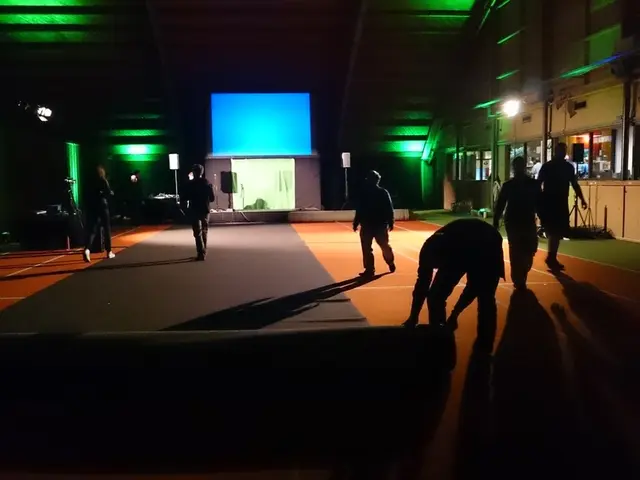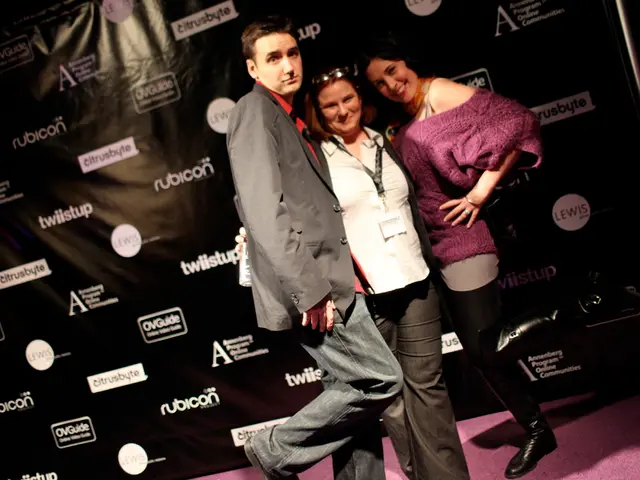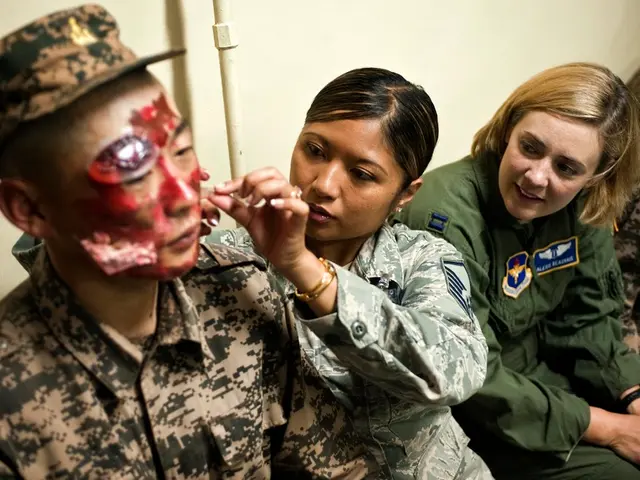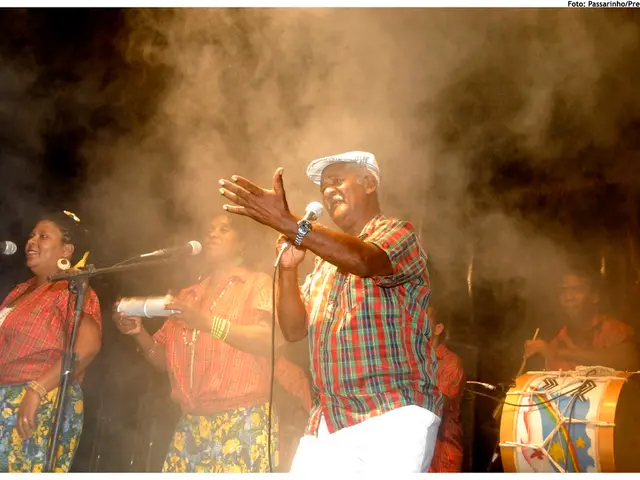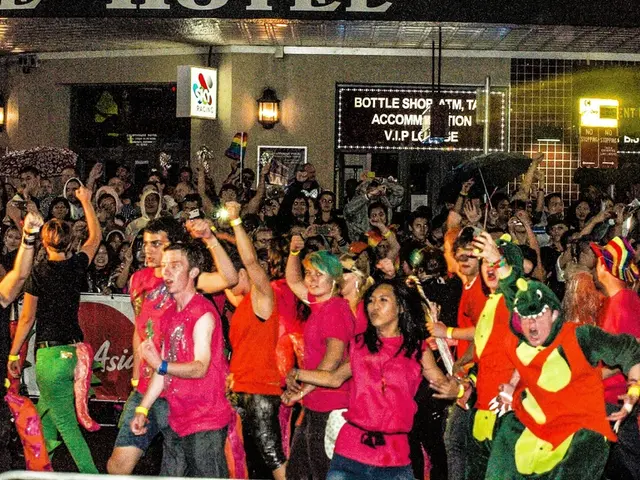Title Review of the Film "The Order" (2024) in Venice: Jude Law versus White Supremacist Extremists
Title: Flashing Back to the Dawn of Modern White Supremacy: A Review of "The Order"
Kick back, buckle up, and prepare to dive into a gripping thriller that takes us on a time-tripping journey back to the '80s, where the notorious hate group, The Order, stirred a cauldron of chaos and bigotry. Led by Australian director Justin Kurzel, "The Order" offers a poignant portrayal of a real-life white supremacist terrorist organization responsible for multiple murders, bank robberies, and attempted race wars.
Inspired by the infamous, anti-Semitic book, "The Turner Diaries," Kurzel's film is more than just a nostalgic nod to the past; it's a chilling reflection of extremist ideologies that persist and mutate in today's divisive political landscape. The relevance of "The Turner Diaries" is painfully apparent when you consider the hate-fueled rallies in Charlottesville, the 2021 Capitol insurrection, and the ominous gallows setup for the former Vice President, Mike Pence.
Our journey begins in Coeur d'Alene, Northwest Idaho, where grizzled Verona Beach veteran, FBI agent Terry Husk (played by a grizzled, gum-chewing Jude Law) sets his sights on the Aryan Nation, quickly realizing that the group is planning something big. He teams up with eager rookie, local police officer Jamie Bowen (Tye Sheridan), and together they chase The Order's charismatic leader, Bob Mathews (Nicholas Hoult).
Mathews, a subtle embodiment of everyday evil, has grown tired of the rhetoric and is ready to take action. He aims to establish a militia to kickstart a race war, even if it means sacrificing himself in the process. Kurzel, fresh from films like "Snowtown," "True History of the Kelly Gang," and "Nitram," once again delivers gritty violence that manages to feel both authentic and choreographed.
Comparisons to Michael Mann's "Heat" and David Mackenzie's "Hell or High Water" aren't far off, especially with the skillful editing work of Nick Fenton guiding the audience through a series of tense robberies, gun battles, and cat-and-mouse games between Husk and Mathews. While the story may lack the breathtaking intensity of those classics, "The Order" remains a captivating rollercoaster ride.
The performances from Law and Hoult are remarkable, ensuring the film delivers an eerie cautionary tale for contemporary audiences. Hoult's riveting portrayal reminds us that the decedents of real-life cults like The Order are still alive, and perhaps most hauntingly of all, thriving beneath the surface of society.
"The Order" premiered at the 81st Venice Film Festival, underscoring the importance of understanding and confronting the roots of extremist ideologies that continue to plague our world today.
As we witness the far-reaching implications of white supremacy in "The Order," it's impossible not to draw connections to current divisive issues and the evolution of hate movements over time. In a world where extremist ideologies still rear their ugly heads, understanding the past can help us better prepare for the future.
Additional Insights
"The Order" and Modern-Day White SupremacyThe movie serves as a valuable reminder of the continuity and prominence of white supremacist movements in America, even in the modern age. Contemporary groups often share similar beliefs with historical extremist organizations, which can be seen in incidents like the 2021 Capitol insurrection. These ideologies demonstrate the lingering threat posed to social stability and democracy.
Cinematic Representation of White Supremacy"The Order" offers a chilling glimpse into the reality of white supremacy, shining a light on a period often glossed over or ignored in historical discussions. By portraying the group's activities in a raw, unapologetic manner, the film challenges the audience to confront the issue head-on.
Connections to Anti-Semitism and Political FiguresWhile the film does not explicitly reference contemporary political figures, the themes of anti-Semitism and extremism may evoke thoughts of controversial figures like former President Donald Trump and his supporters. The resonance between the "Jews will not replace us" chants from Charlottesville and similar modern-day attitudes highlights the ongoing challenges in combatting hate groups in America.
Credits:* Antisemitism* Donald Trump* Film* Venice Film Festival* Racism* Cinema*
- The portrayal of The Order in Justin Kurzel's film, "The Order," serves as a sobering reminder of the ongoing prominence of white supremacist movements, echoing similarities with instances like the 2021 Capitol insurrection.
- Beyond being a nostalgic trip to the past, "The Order" offers a startling cinematic representation of white supremacy, drawing attention to an often-overlooked period in historical discussions and challenging viewers to confront the issue directly.
- The resonance between the anti-Semitic themes in "The Order" and contemporary political discourse may evoke thoughts of various public figures, highlighting the persistent challenges in combatting hate movements in modern society.



